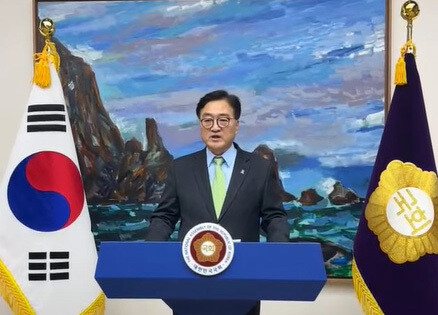
South Korea's National Assembly Takes Action to Overturn Martial Law Declaration
On the night of December 3, 2024, a dramatic turn of events unfolded in South Korea, as President Yoon Suk-yeol declared a state of emergency martial law, citing threats from domestic anti-government forces and North Korea. This move was aimed at safeguarding the constitutional order and national security. However, within just a few hours, the National Assembly took swift action, passing a resolution demanding the immediate lifting of the martial law.
At around 1 a.m. on December 4, National Assembly Speaker Woo Won-sik convened an emergency session. The resolution to revoke the emergency martial law, which had been imposed by President Yoon just hours earlier at 10:25 p.m., was passed overwhelmingly with unanimous support from all 190 lawmakers present. This decision reflects the power granted to the National Assembly under Article 77 of the Constitution, which states that if a majority of the members demand the lifting of martial law, the president must comply. The resolution, therefore, led to the martial law's repeal a mere two hours and 35 minutes after it had been declared.
Also Read:- Denise Van Outen Opens Up About Her Wild Summer and Single Life
- South Korea Faces National Crisis as Martial Law is Imposed
Upon the passing of the resolution, the National Assembly hall erupted in applause and cheers. Woo Won-sik emphasized the lack of formal notification from the president to the National Assembly about the martial law declaration, which he argued was a violation of constitutional duties. Despite this, he expressed the Assembly’s commitment to proceeding with the process of lifting the martial law.
This swift action highlights the ongoing political and constitutional tension in the country. President Yoon had defended the martial law as a necessary measure to protect the nation from what he described as disruptive anti-government forces, particularly targeting opposition lawmakers and their alleged efforts to undermine state stability. He claimed that the opposition’s actions, including budget cuts and judicial interference, were attempts to destabilize the country’s democratic order.
The martial law declaration and its subsequent revocation have sparked widespread debate and concern. Critics argue that such drastic measures violate democratic principles, while supporters believe they were necessary to preserve the nation's constitutional integrity. The situation remains fluid, with political leaders from both sides of the aisle continuing to engage in heated exchanges over the future of the country’s governance and the president’s authority.
Read More:

0 Comments